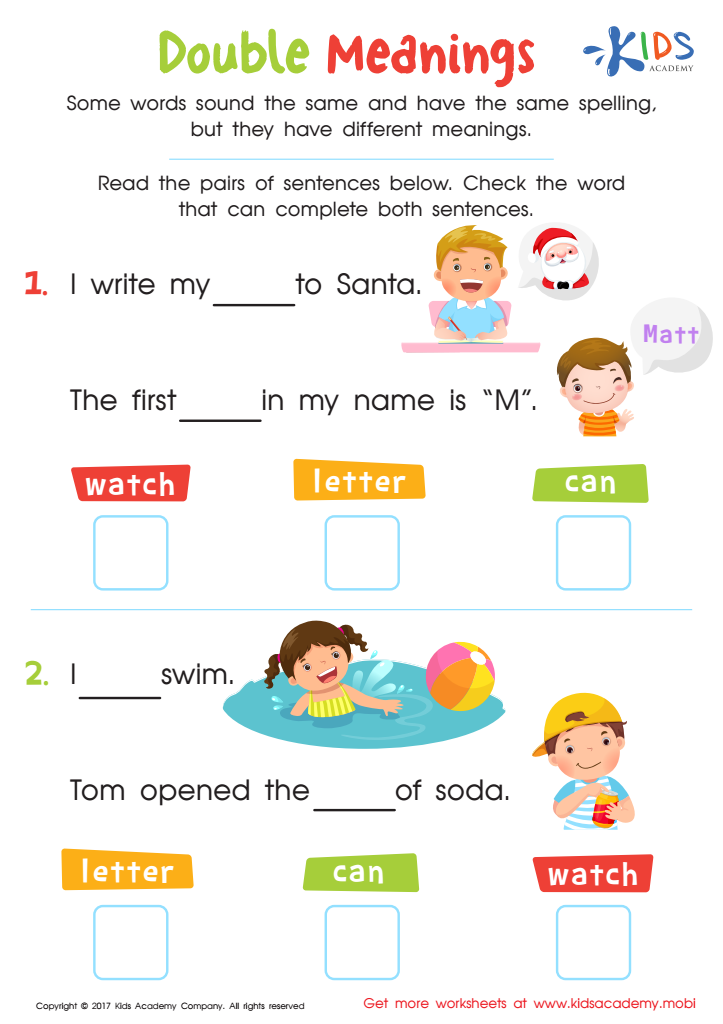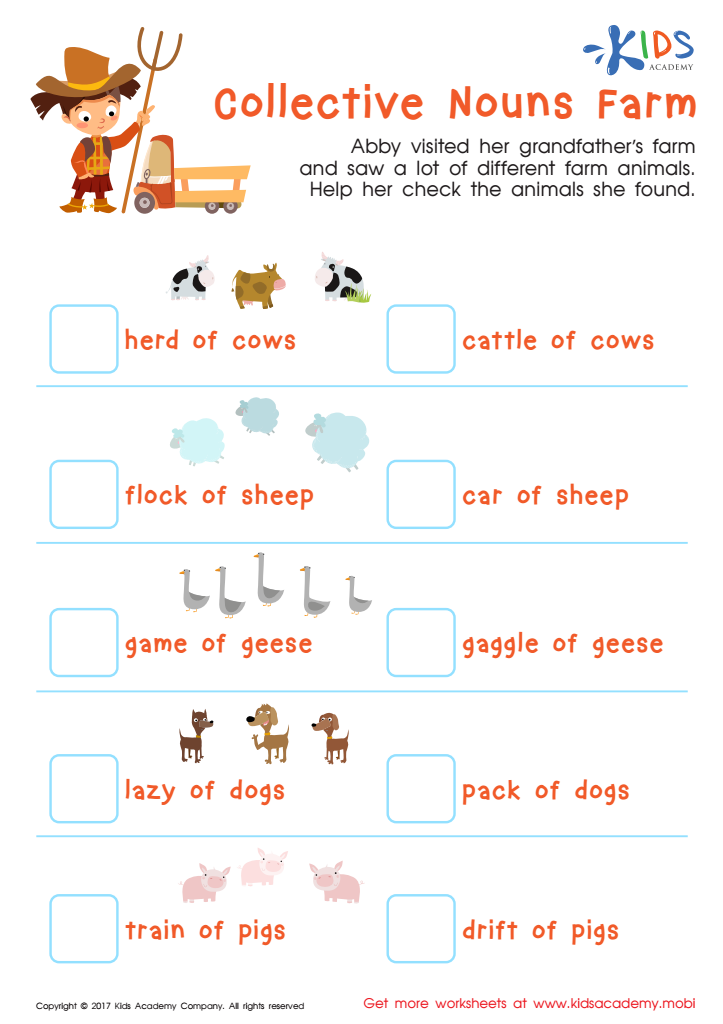Language comprehension Worksheets for Kids
2 filtered results
-
From - To


Double Meanings Worksheet


Collective Nouns Worksheet
Question/Answer
What are some effective activities to train students’ Language comprehension skill when teaching them about Grammar?
To effectively train students' language comprehension skills in grammar, activities like sentence restructuring tasks, error correction exercises, gap-fill activities, and cloze tests can be highly beneficial. Incorporating reading comprehension passages with focus on grammatical structures, alongside discussion and paraphrasing exercises, also enhances understanding and application of grammar in various contexts.
Why is the Language comprehension skill important for Kindergarten students?
Language comprehension skill is crucial for kindergarten students as it forms the foundation for reading, writing, and effective communication. It helps children understand and process spoken and written language, enabling them to follow instructions, express thoughts, engage in conversations, and assimilate new concepts. This skill sets the stage for academic success and social interaction throughout their educational journey and beyond.
How to test a Kindergarten student’s Language comprehension skills?
To test a Kindergarten student's language comprehension skills, use age-appropriate storytelling or read a simple book to them, then ask questions about the story. Focus on who, what, when, where, and why questions to gauge their understanding of the plot, characters, and setting. Observe their ability to predict outcomes or draw conclusions based on the story.
 Assign to the classroom
Assign to the classroom

.jpg)










